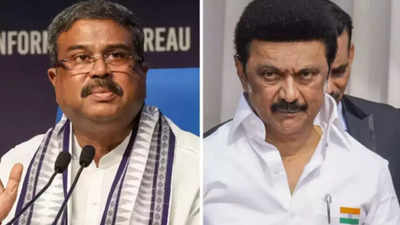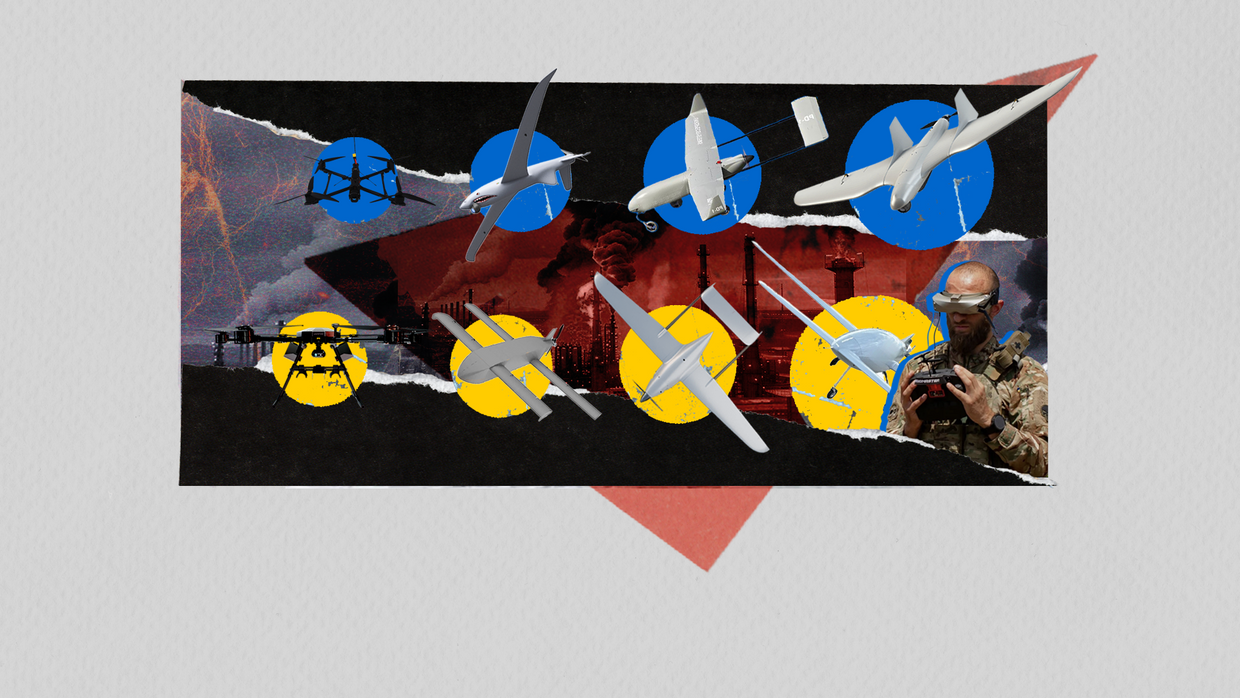
The Tamil Nadu government has been refusing to participate in the Prime Minister's Schools for Rising India (PM-SHRI) scheme, citing concerns that the
New Education Policy
(
NEP
) is trying to impose Hindi in the Tamil-speaking state, and accusing the center of withholding funds to push its language agenda.
The clash is part of the ongoing conflict between the BJP-led central government and the DMK-led Tamil Nadu government which began after Union education minister Dharmendra Pradhan urged the state to adopt the three-language formula.
In response, CM M K Stalin accused the
Centre
of imposing Hindi and withholding Samagra Shiksha funds meant for the state.
What is the three-language policy?
The three-language formula is a policy that encourages students in India to learn three languages: their mother tongue, Hindi, and English. It was first introduced in the 1968 National Policy on Education, but not implemented by Tamil Nadu.
Why is Tamil Nadu protesting?
Tamil Nadu has a long history of opposing Hindi imposition. After the Constitution came into effect in 1950, non-Hindi-speaking states, especially Tamil Nadu, strongly opposed the Union government’s move to make Hindi the sole official language after 1965.
Union Education Minister Dharmendra Pradhan’s recent remarks sparked fresh criticism, as they challenged Tamil Nadu’s decades-old two-language policy of Tamil and English.
Who said what?
The issue began on February 15 when Union Education Minister Dharmendra Pradhan, while speaking to reporters in Varanasi, urged the state to implement the three-language formula to ensure educational equality.
Pradhan had alleged "political motivation" as the reason for the DMK regime not agreeing to the NEP. "They have to accept the NEP in letter and spirit," he had said.
Stalin claimed that the BJP was using the NEP not to improve education but to secretly push Hindi. “The Centre knows it can’t directly impose Hindi without facing fierce opposition, so it uses education as a backdoor,” he said.
Stalin had accused of "blackmail" for allegedly linking the release of funds to the state's acceptance of the National Education Policy (NEP) and the three-language formula. Sharing a video clip of Pradhan's remarks to reporters in Varanasi on February 15, Stalin, in a post on 'X,' quoted him as saying that Tamil Nadu must align with the Indian Constitution and that the three-language policy is the rule of law.
He also wrote to Prime Minister Narendra Modi requesting the release of 'Samagra Shiksha' funds for Tamil Nadu. In his letter, Stalin expressed concern over Union Education Minister Dharmendra Pradhan’s statement, which suggested that the funds would be withheld unless the state adopted the three-language policy outlined in NEP 2020.
The Tamil Nadu CM also said that he will not implement NEP even if Rs 10,000 crore is offered to Tamil Nadu.
"We are not opposed to any language but will remain firm in opposing its imposition. We are not opposing the NEP only for the attempt to thrust Hindi but for several other reasons as well. The NEP is regressive. It will drive students away from schools," Stalin claimed.
Apart from 'denying' financial aid to SC/ST and BC students, which is now being provided, the NEP proposed public exams for third, fifth, and eighth standards, besides introducing a common entrance test for admissions to arts and science colleges, the Chief Minister said.
"The Centre says Tamil Nadu will get Rs 2,000 crore if the state implements the NEP. I wish to say that we will not agree to the NEP even if the Centre offers Rs 10,000 crore. I will not allow the NEP and commit the sin of pushing Tamil Nadu backward by 2,000 years," Stalin said.
In response, Pradhan asked DMK to "rise above political differences for the interest of young learners." He also said "By not implementing NEP 2020, we are depriving our students, teachers, and parents of global and pan-India opportunities.
"Many non-BJP states have implemented the progressive policies of NEP despite political differences. NEP 2020 aims to broaden the horizon, not narrow them. I would, therefore, request you to rise above political differences and look into the matter holistically keeping in mind the interest of our young learners," he said.
What is NEP?
The National Education Policy (NEP) 2020 is India’s third education policy, following those in 1968 and 1986. It aims to make education more inclusive, skill-based, and culturally rooted.
The policy promotes foundational literacy, vocational training, and multilingual learning. The three-language formula encourages students to learn three languages, with at least two being Indian but does not mandate Hindi.
.png)
 German (DE)
German (DE)  English (US)
English (US)  Spanish (ES)
Spanish (ES)  French (FR)
French (FR)  Hindi (IN)
Hindi (IN)  Italian (IT)
Italian (IT)  Russian (RU)
Russian (RU)  6 hours ago
1
6 hours ago
1









Comments